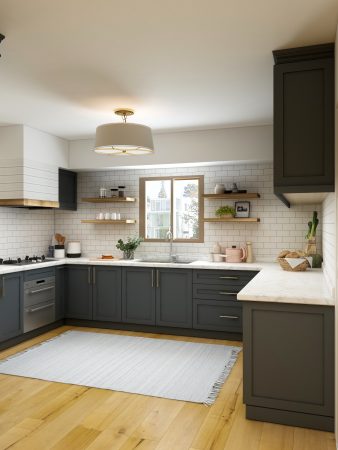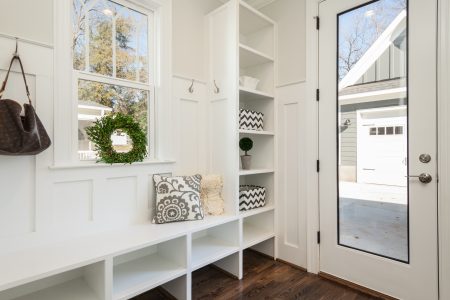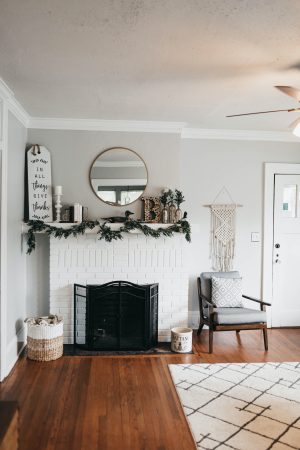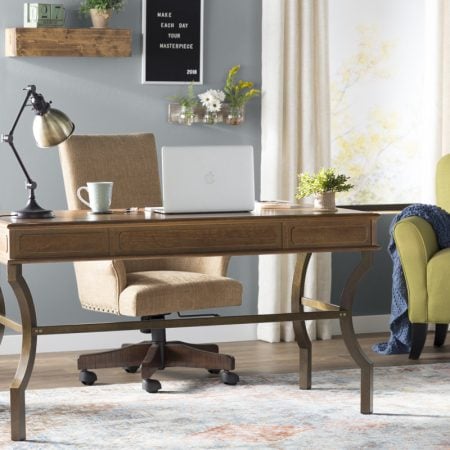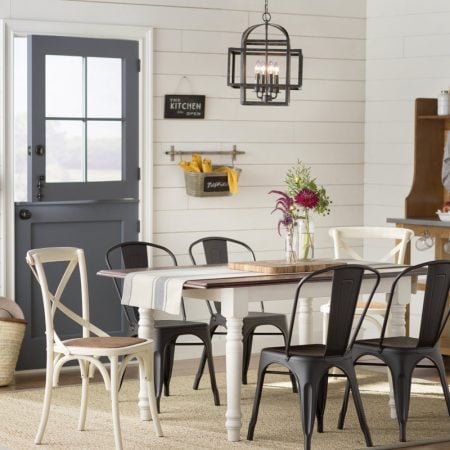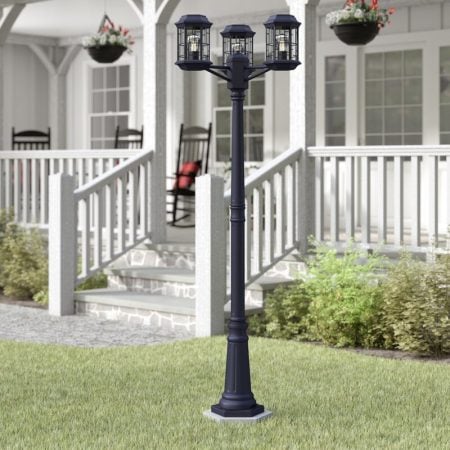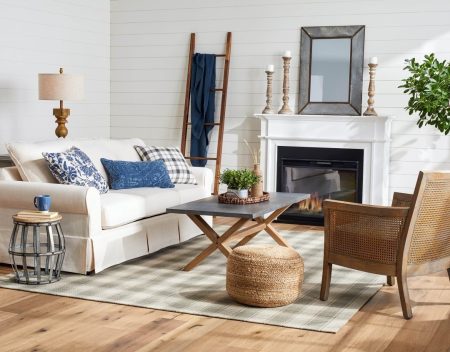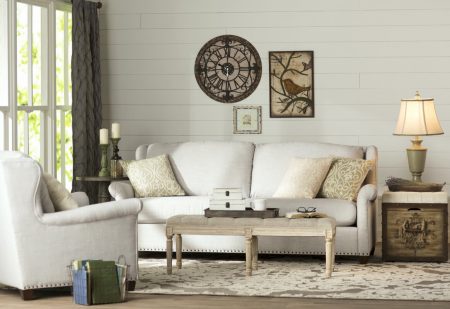Farmhouse Kitchen Countertop Ideas
You’ve chosen the perfect farmhouse kitchen cabinets and you have an idea of how you’ll style your kitchen. But what is the best countertop material to enhance your farmhouse kitchen?
Many materials will look fabulous in your farmhouse kitchen, so your individual practical considerations and budget will be important in the choice you make for your home.
You’ll also want to think about the color of your kitchen cabinets and the natural light, as well as the style of electric lighting you’ll choose.
You should decide if you want a pretty, rustic look or a gleaming, sleek look for your farmhouse kitchen. The countertop will do a lot to define the overall style.
Wood Farmhouse Countertop
Probably the first most obvious choice for a farmhouse kitchen, due to its natural look and warmth, is a wood countertop.
This tends to be an affordable choice and has advantages. Though it can scratch, these marks can be sanded off. It’s also easy to clean with soap and water and can be very durable.
You’ll have to watch where you put your pans from the stove, however, a wood countertop is not heat resistant and will need regular maintenance. But you’ll have the perfect cottage look in your home.
Butcher’s Block
The original idea of butcher’s block was to prepare food directly on the countertop. But these days you’ll likely want to use a chopping board to prevent scratches to the surface.
Like the wood countertop option, butcher’s block is hardwearing if maintained, so you’ll need to wipe up spills quickly as it can suffer from water damage. You’ll also have to maintain it by applying oil periodically, as with wood countertops.
But for a gorgeous, traditional farmhouse finish in a warm wood, this would be the go-to design choice. It looks fantastic with white and pastel shades, as well as blues and teals.
Wood Effect Countertop
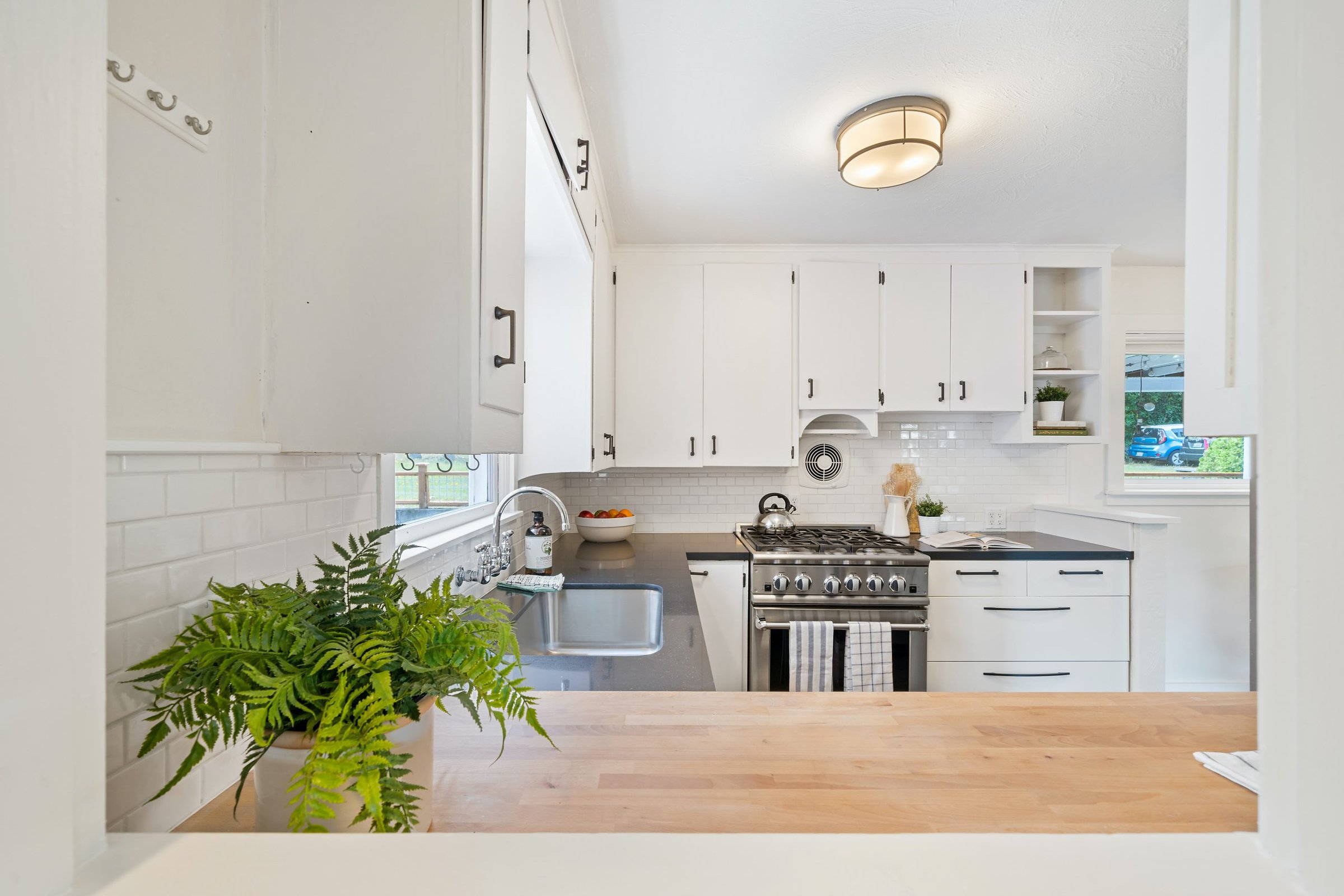
For a countertop with all the beauty and color of natural wood but easy maintenance and lower price, then wood effect is a great option.
Usually available in a laminate veneer, this will be water and heat resistant. The downside is that it might scratch. It will warm up a white shaker kitchen and instantly give a cottage feel to your home.
You might also want to mix and match with other countertop materials. It looks splendid next to black granite for a cozy but stylish effect.
Marble Countertop
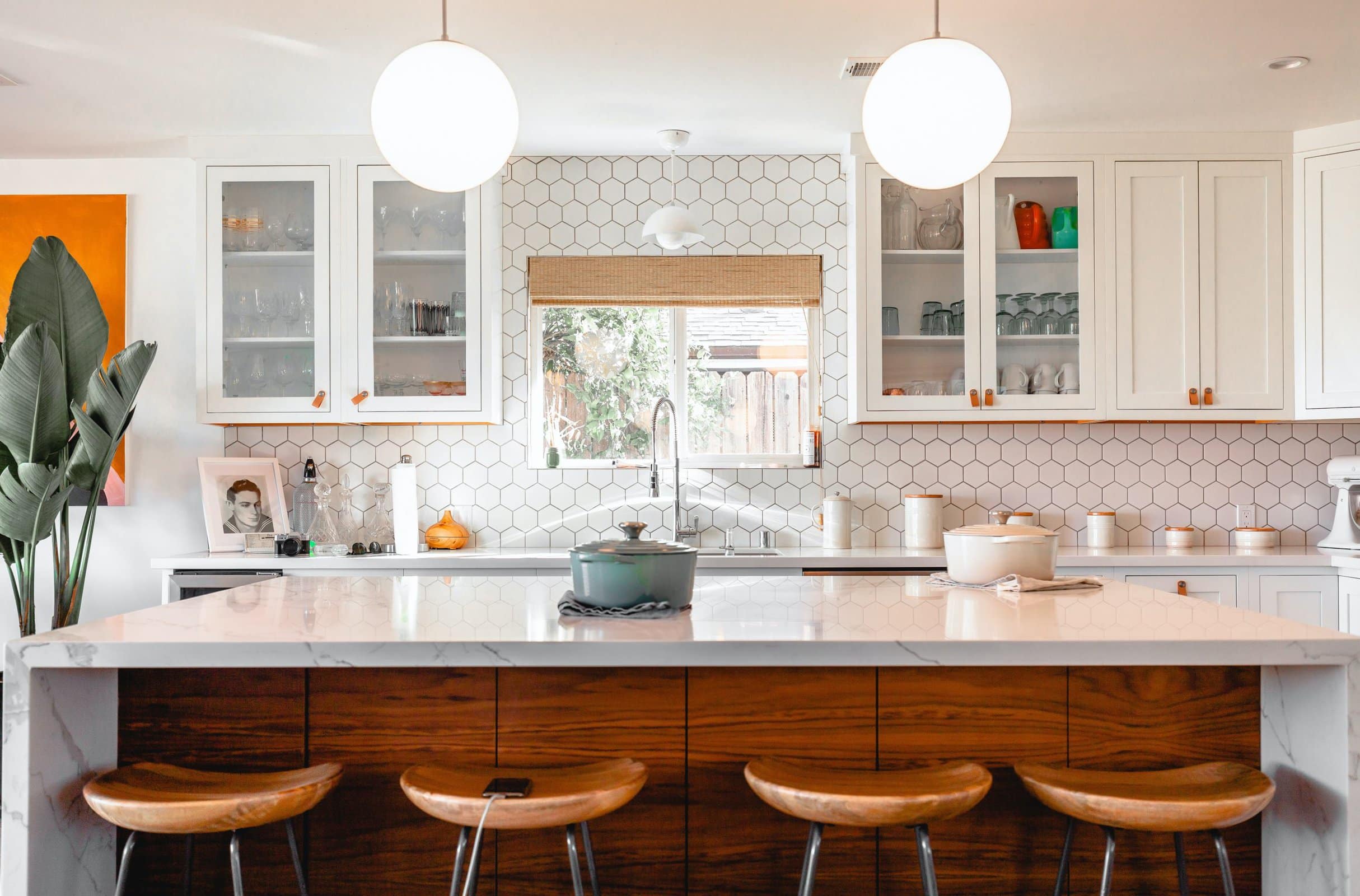
Perhaps not the first material you’d think of for a farmhouse kitchen, but marble can add elegance and expense to simple cabinets.
Marble is durable and easy to clean. Solid marble is expensive, up to $200 per square foot. In its solid form there is slight risk from cracking but you will not go wrong on adding luxury to your farmhouse kitchen.
There’s no denying the beauty of marble, but it can need frequent resealing. This may be a finish more suited to occasional kitchen use.
Solid Surface Countertop
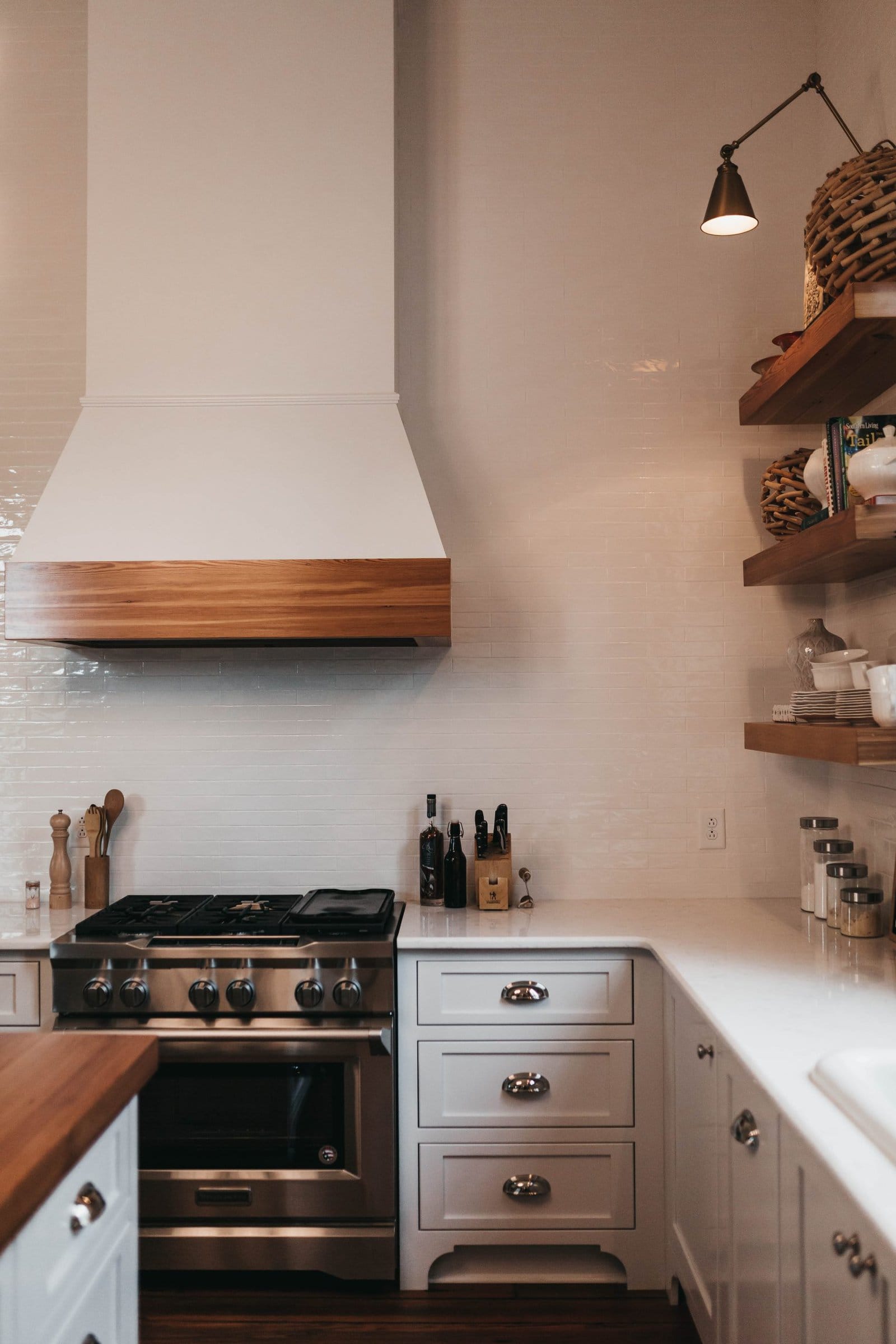
Solid surface is a manmade material so it is a good choice for a modern looking farmhouse kitchen. There is a range of looks, from plain colors, to marble and granite effect. If you have little natural light then a white will enhance the daylight hours.
Pros are that it is stain resistant, scratches can be sanded out and it has a seamless design. It is also less costly than quartz or marble.
On the cons side, it’s not heat resistant and it can scratch so may not be best suited to frequent family use. Or be sure to get yourself a trivet to protect the countertop from hot saucepans when you’re cooking.
Granite Kitchen Countertops
Granite is large slabs of natural stone which are then polished to make stylish countertops. Black granite looks sleek and expensive, and will work with wood, painted or veneer cabinets.
The natural quality lends its beauty but also means it is porous. Granite can take up liquids and so can stain, though with a black option this is less likely.
Granite countertops require very little maintenance, and are heat and scratch resistant. They can be kept clean with just soap and water.
You won’t want to cut directly on the surface as it’s so hard it will dull knives. Also, granite can crack with too much pressure.
Soapstone Countertops
Soapstone is naturally rustic so it is a great choice for a farmhouse kitchen. In black or dark gray with a unique patina, this will add a cool, refined look to your kitchen cabinets.
Usually cut in one piece, soapstone will not have seams at the kitchen basin, for example. It is headwearing, and though it can scratch, these marks can be sanded out.
The surface is not porous like marble and granite so it is heat and stain resistant. It does need maintenance with mineral oil and will darken over time, though this is not necessarily a disadvantage.
Quartz Farmhouse Countertop
Quartz countertops are made of small particles of quartz held together with resin. Coming in a variety or colors and looks, such as marble, you can find a style to go with your farmhouse kitchen.
Quartz is cheaper than marble and has the advantage that it is stain resistant and needs very little maintenance. It is however not so great with heat and can discolor over time.
A sparkling white countertop will look fantastic against a colorful shaker style kitchen cabinet, as well as contrasting with pastels. Look also for a gold effect quartz countertop if you like the Midas touch.
Countertop in Concrete
If you’re not familiar with concrete in interior design, you may wonder how that would work as a kitchen countertop. Once highly polished, concrete has a beautiful patina. It can be relatively cheap, especially if you install it yourself, and is hard wearing, being heat and scratch resistant.
It won’t be a choice for those who need a practical kitchen installed quickly as the concrete takes a month to ‘cure’. It also requires regular sealing. It’s ideal however for those who love an urban, utilitarian finish to their farmhouse design.
In Conclusion
Farmhouse kitchen cabinets tend to be plain in design so you can match pretty much whichever countertop you like to reflect your personaility.
Search for the looks you love and you’re sure to find a dream countertop in your budget, whether that’s a natural quarried stone, wood or a composite.
Just remember to take note of practical and maintenance requirements of each material so that you find the right one for the way that you use your kitchen.


